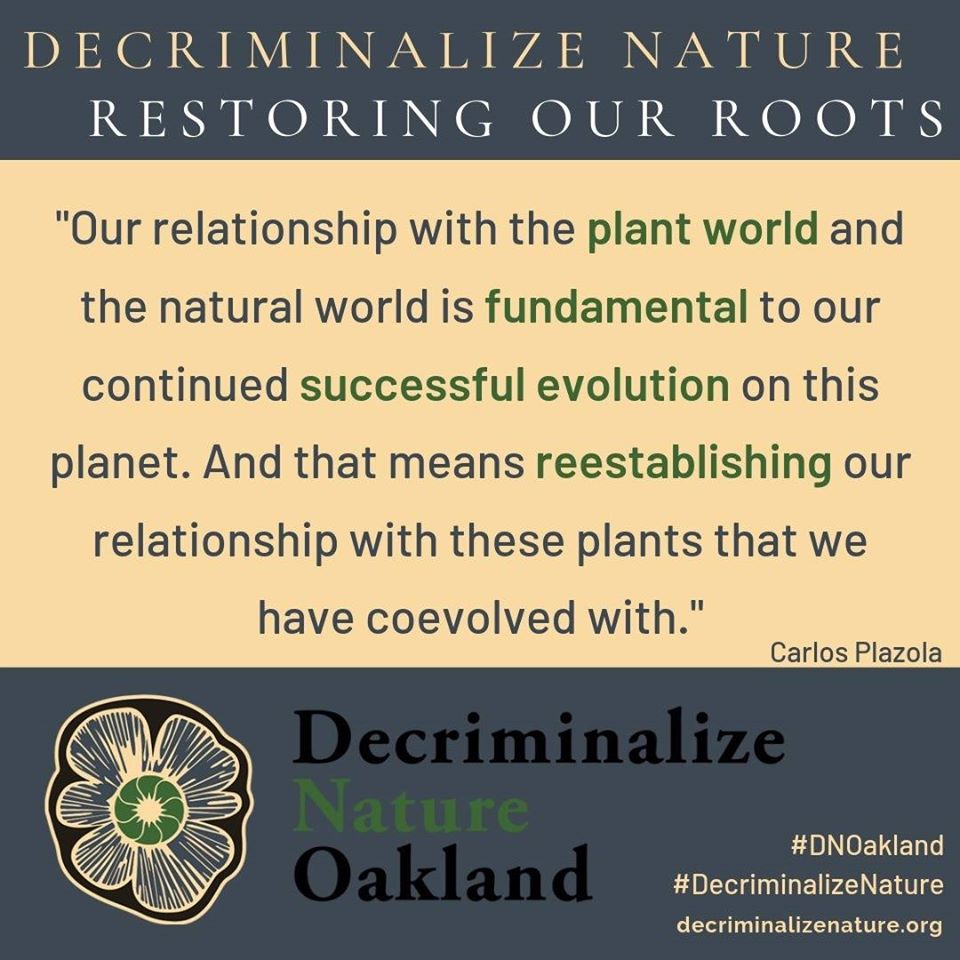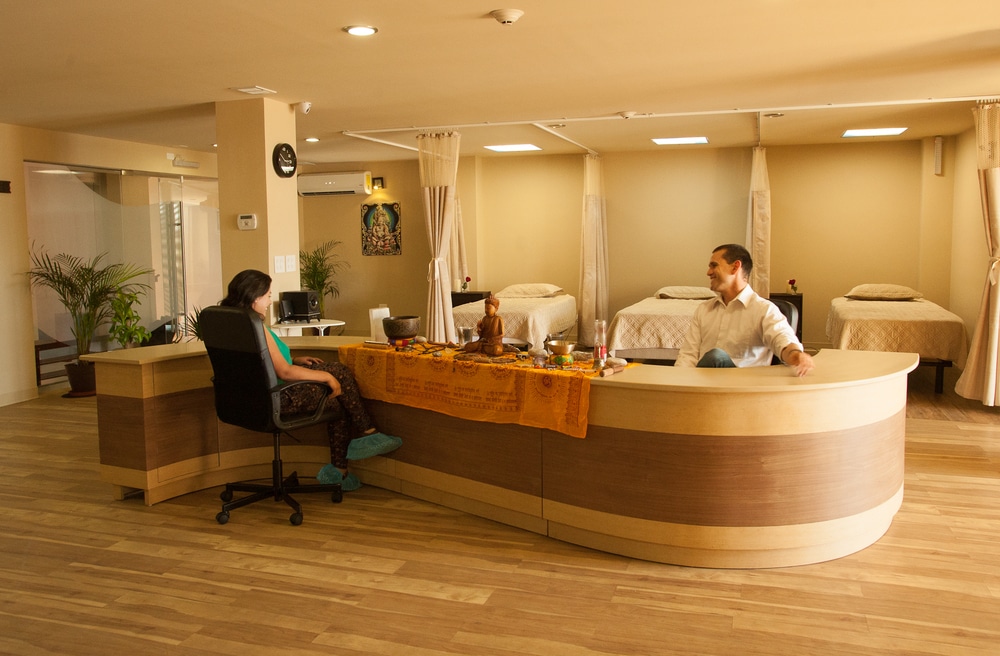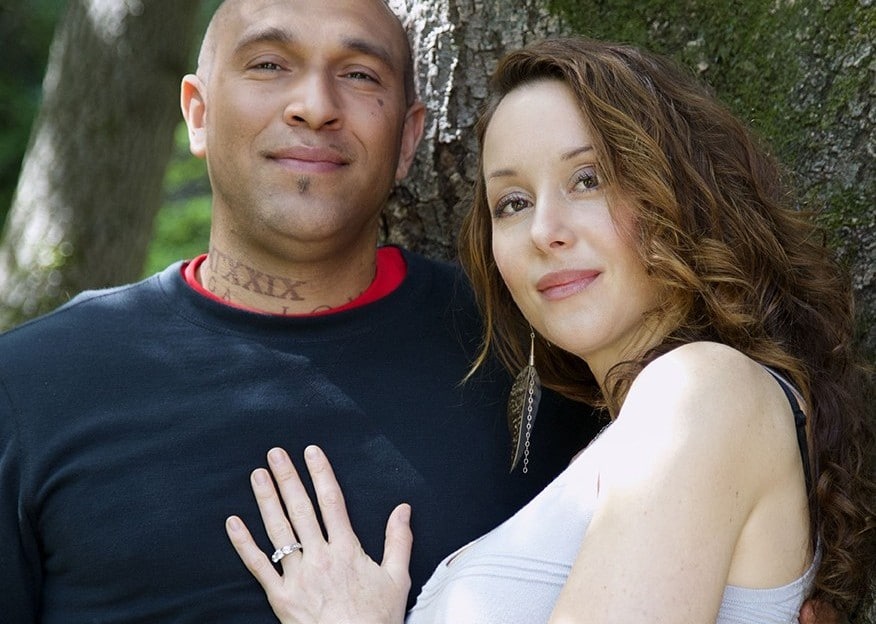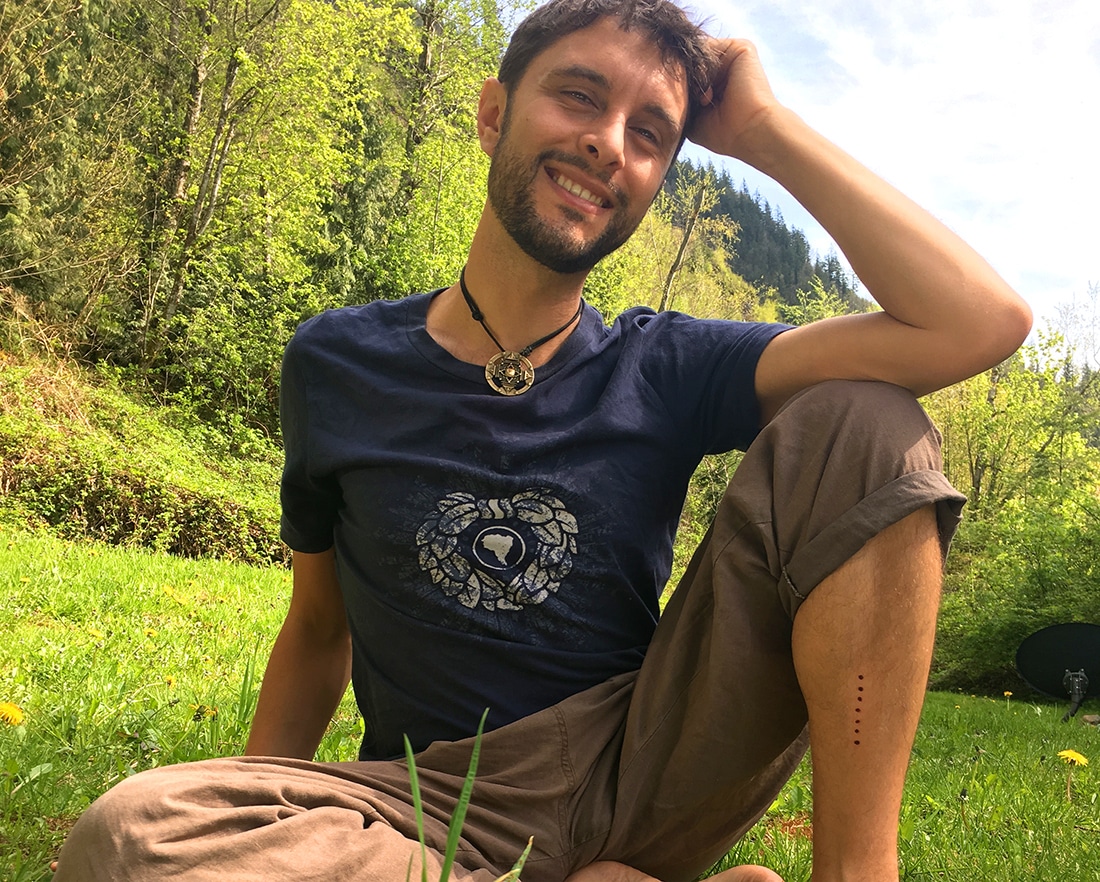
In our second interview (first interview here) with Bob Otis, member of Chacruna Institute’s Council for the Protection of Sacred Plants, Garden and Community Steward at Sacred Garden Community, co-founding chairperson of the Decriminalize Nature Oakland movement, we speak about the special blend of resources, strategies, and inner practices that led to the unanimous approval of their ballot measure in June 2019 that decriminalized psychedelic plants and fungi in the city of Oakland.
Thanks again for speaking with us, Bob. How do you feel about the corporatization of plant sacraments, and regulation vs. decriminalization? How do we balance respect for religious traditions with the need to bring these medicines to people at scale within the medical and legal paradigms that currently exist?
We need conditions for growing transparent, safe, careful, respectful healing and insight in our struggling communities. We need this for our own healing and for our own religious insight as individuals and communities, to meet the revealed truth of our own lives, as we experience them. We don’t need to be ashamed of careful, respectful, informed sacred plant practices. We do need honesty with our elders and safety for our practitioners. This is the authority that guided the Decriminalize Nature Oakland movement up through to the resolution getting passed.
For me, the decriminalization effort was a meditative practice. I was feeling the need to create conditions so that I could be honest with the elders of my community. I knew that we had no cause for shame, and was feeling a strong need for safety. We wanted to be safe, and honest, and to be able to quietly engage sacred practice for healing and insight without unnecessary risk or fear. Sacred Garden’s oldest member turned 80 this month! We need to be able to call 911 without fear if we ever need to.
We need that space for free practice, according to the heart of our experienced Truth, in a safe way. For Sacred Garden Community, we grow our own resources; we grow the sacraments that we need to work with. I have a beautiful Salvia divinorum garden that everyone loves to come pick leaves from, and there are other sacred plants, legal to grow, that grow there too. It’s a ‘Grow, Know and Share’ sacred community model. There’s no talk about commodification, making revenue or anything else in this model. For Sacred Garden Community, work with these plants reflects a sincere religious practice. We are discussing formally recognized Sacraments, understood as such by our community and by other ancient traditions.
So, these are not commodities to us–but we’re also happy to engage with others who may work in commodity regulated spaces, like clinicians. I also believe clinical work with these materials is promising for those who need it. Access and affordability are issues that we are working to overcome through an “all/and” view into outreach. Oakland’s beautiful Sacred Garden Community is providing workshops for both clinical and pastoral care, as well as general education for safe engagement with sacred plants, fungi and related materials. Cross-pollination between community and clinical practices are promising. With mutual respect and care, we can work together.
Members of the Bay Area decriminalization community are working to establish a model for legalization and regulation in Oakland. I’m no longer on the board at Decriminalize Nature, so I’m not actively impacting these latest developments at the political level. I understand that they are trying to think about careful ways of moving towards forms of commodification and regulation that still allow low capital entry, non-commodified religious practice, grow and share models, that sort of thing. I’m watching what happens in that area with interest while developing and sharing models for good local practice. I’m not offering complaint or critique, but I’m sincerely asking that initiatives that move towards regulation—whether for clinical access, or access through dispensaries or whatever commodification models they come up with-—please do not restrict our right to practice freely in a personal or institutional religious context by requiring that our sacraments move through a commodity framework. Any of you who are engaging in commodification or regulation models: we don’t care to attempt to criticize or control those processes, aside from asking that you allow us to engage in our practice without it being dominated or controlled by neo-colonial economic regulatory and economic forces.
Decriminalize Nature Oakland was a huge success, and now there are many movements happening all across the country in a similar vein. What did you do right, and what worked? What advice would you give to these nascent movements in other cities and states?
I want to express great gratitude to the civil leadership of Oakland for their wisdom and compassion. The Oakland City Council was willing to meet with us, share respectful feedback, hear our message and ultimately to support our message. I also want to thank Denver for taking the lead there and cracking the ice: way to go Denver! And I’m also proud of Santa Cruz-— I love that town, home of my alma mater, and I’m feeling great about their success too, as we all should!
So what was the magic exactly? I feel like there were two or three poles of magic that came together in Oakland. I first want to give credit to the magic of the plants themselves. I feel like the practices that have been engaged within Oakland have brought us into a deep place of listening and connection. In 2018 and 2019, we were listening and hearing what the universe was asking from us. I think magic can come out of that, almost in an effortless way. It’s almost like the less you do and the less you try and the more you listen, that’s when the real change happens. I felt that deeply on a personal level, and I’m thankful for that. But at the same time, a lot of work needed to get done.
We were fortunate to know Larry Norris of ERIE, who was in graduate school and working on his dissertation – he received his Ph.D. this spring. He was and still is putting a lot of time and effort into writing and social media for the initiative. Larry did a lot of prolific production from a place of knowledge, being a grad student of CIIS, and well versed in the science and history of sacred plants. Larry was a motivated add to the team, a core media producer who brought a lot of knowledge and aggressive energy into the group.
So we had the heart of practice that was calm, and then we had me and Larry with a lot of formal knowledge about what needed to go into a resolution for it to be solid. You need to know the difference between a tryptamine and a phenethylamine if you want to move through city council with a resolution that’s useful, know what I mean? My favorite meeting was probably the one with Oakland Police Department’s laboratory expert. I wanted to include all the indole amines, tryptamines and phenethylamines including the Shulgin compounds, but Larry said ‘What about the N-BOMEs? They have that risk factor, do we really want to go that way quite yet?’ You get the point.
Finally, we had Carlos Plazola there. He knew City Council, from his history on council staff, with cannabis regulation, local development. It helped that we had someone who knew the city council members. It’s a huge help if you’ve got a city council that is already open that way—like a cool city like Santa Cruz where the council is open to positive change, or if you find a person in your city who is entheogen positive and knows the city council members.
For me, the most important thing was coming in with the calm and humble heart that, with discernment, sees that there are no enemies. City council can be your best friend because they’ll make you do it right. You also need the knowledge to draft a strong resolution, and Decriminalize Nature can help with that—although I’d recommend you have that knowledge in-house as well. And then last but not least, a connection to the political side of things doesn’t hurt either.
So what I’m hearing is: You need the heart, you need the smarts, you need to do the quiet inward work that entheogens invite us to do, you need to have people willing to do the hard external work, and you need the connections to make this happen.
Yes, either the political connections or savvy; one way or another you have to know how to get in there.
When you think of this world of politics, even at the city council level, and you think of the entheogenic community, you don’t often think about how those create a Venn diagram and overlap, but if one wants to influence the other, there obviously needs to be some connections.
Right. And that’s an area where there’s still a lot of struggle, because one of the things that sacred plant work can do is open up the possibility for recognizing both the subtle and beautiful differences between each one of us as unique individuals, and then also recognizing these profound commonalities, like how the consciousness looking through your eyes is the same consciousness that’s looking through my eyes, but it’s just going through a different filter. We are all a part of one thing, and we are all actually literally one, in reality. You can find strange bedfellows.
That being said, there’s a lot of heat, even across different decriminalization groups. One group wants everything that’s an illegal drug to be made completely legal or decriminalized. Other people are upset that certain groups are only focusing on mushrooms and not all the other entheogenic plants. Some people want only decriminalization and no regulation. Suddenly the group that was working only on decriminalization is now talking about commodification and regulation. So we recognize our oneness, but we’re also all different, right? Getting together and trying to move through those differences in a loving way, without domination or “othering” those who have different opinions, is a key goal. That also becomes interesting, because people can see that they have some hidden shadows: “I thought I was a really loving guy, but when these people disagreed with me on this policy, I named them every bad name in the book… because they just don’t get it.” So we are trying to learn about ourselves as we go through this process, so that we can be practicing what we’re preaching.
It’s understandable but also hilarious to hear about groups that are 99% on the same mission, but that 1% can breed huge amounts of animosity. Imagine if five years ago someone told you that we’d be fighting about ‘how’ mushrooms and sacred plants were being decriminalized, instead of ‘if’. The nuances here are important to be sure, but from a zoomed-out perspective, it’s a great problem to have.
Yeah, it’s interesting when we become angry with each other over which generally positive direction to take. Leaders argue with leaders, groups with groups. People come to me and say, ”Bob, you’re this community leader. Will you help us with this disagreement?” You know what I mean. And then the person they were talking about comes to me and says, “Help me Bob, these people are way off!” That’s been interesting to say the least. Everyone has something useful to offer, and we all need to let some things go. If we can come from a place of healing, from careful and respectful listening, trusting that the other is also always worthy of a voice, we’ll have a chance.
We’re learning. I intend to operate from an “all/and” perspective, with a soft leadership style that encourages responsible and responsive authority from all others. There is an important difference between authoritarian and authoritative! The main thing for me is to practice remaining calm and aware, to be present without worrying or trying to control too much. Pay attention to what I’m feeling inside, and act from my quietest, calmest place. Avoid speculative paranoia, spotlighting, name-calling, throwing darts over perceived differences. Really try to hear the other perspective, while humbly asking also to be heard. Listen with respect. That works to a degree, but when someone comes out swinging hard and arguing aggressively, or saying personally hurtful things, we still have to self reflect on why we can get defensive, frightened, hurt, maybe angry. When windows of tolerance are strained, sometimes removing oneself from a conversation can be ok.
We’re working now within groups, trying to understand how to engage in careful, respectful and trusting ways. The upcoming Psychedelic Liberty Summit will be one of these environments where we’ll get all these different opinions together with a commitment to civil discourse. There will probably be some fireworks! [laughs]
We are very grateful to Bob for speaking with us on psychedelic decriminalization. You can read our first interview with Bob here and check out the upcoming Psychedelic Liberty Summit here.










